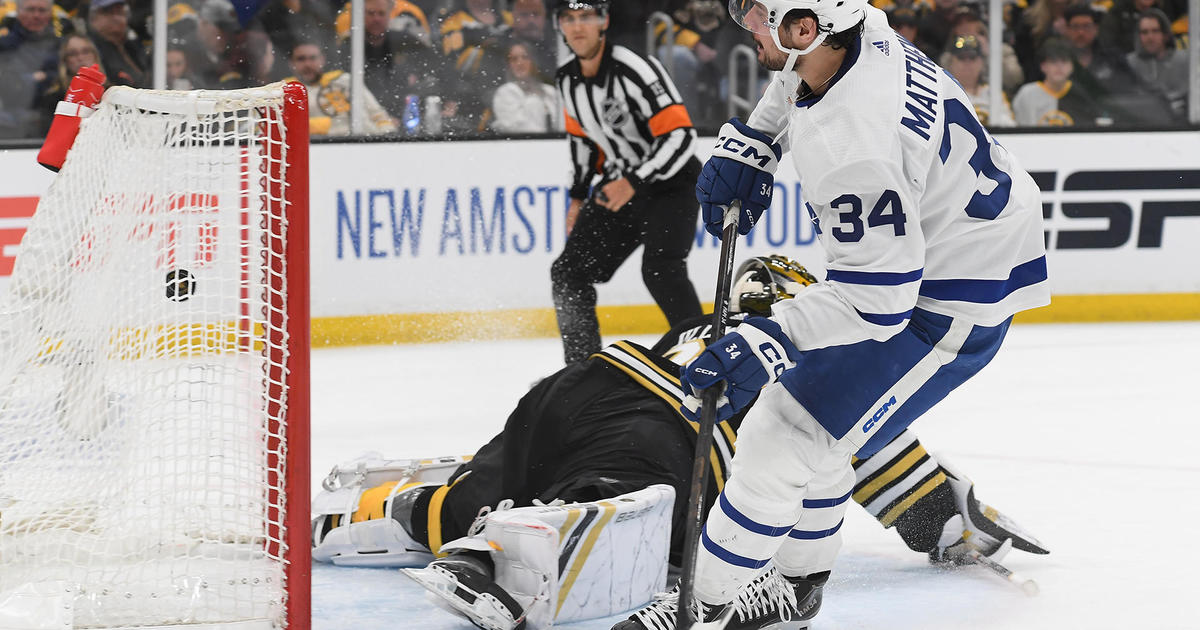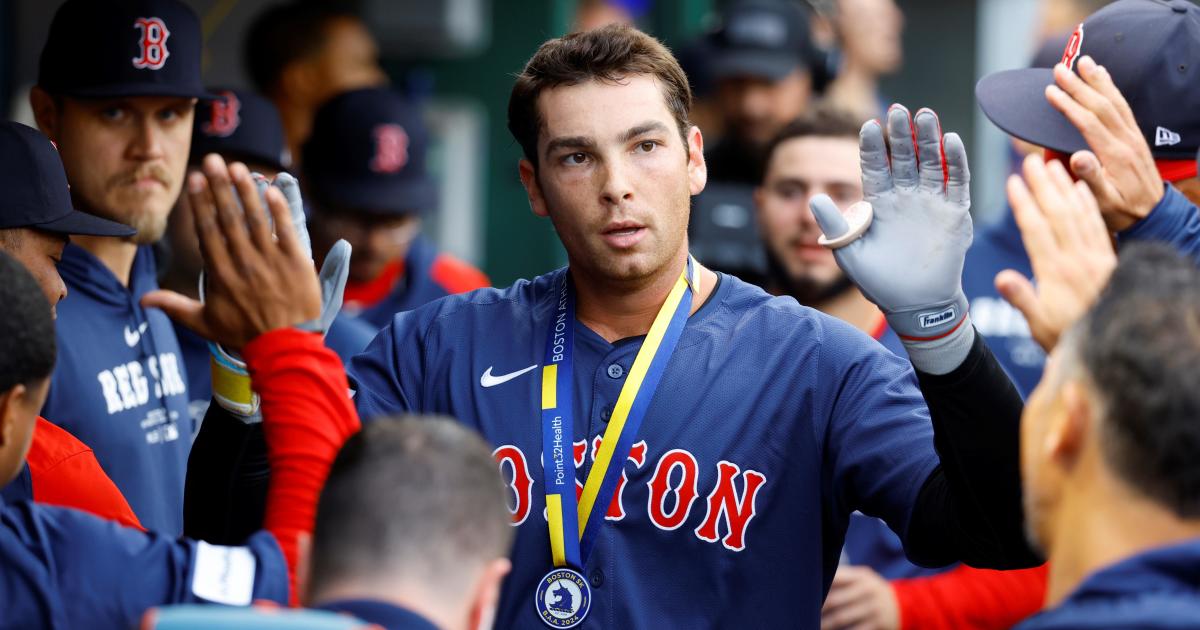Bruins' Injuries, Lack Of Depth Can't Overcome Slumping Stars Vs. Sens
By Matt Dolloff, CBS Boston
BOSTON (CBS) -- It was almost poetic to see the Bruins' season end at the hands of a penalty on David Pastrnak, followed by a power play goal.
There will be plenty of complaints about the officiating during the Bruins-Senators series, which the Sens won in six games. It was inconsistent at best. At times, it was quite poor. But there's no excuse for the penalty that Pastrnak took in overtime of Game 6 that led to the Senators' series-winning goal.
There's no excuse for a lot of the penalties the Bruins took in the series.
In all, the Bruins took 27 penalties over the course of the series. Quibble all you want about calls like the one on Pastrnak in Game 6, when he clearly grabbed the Senators' Clarke MacArthur and dragged him to the ice. An obvious holding penalty, but perhaps one you think the refs could have let go considering the situation. But in that spot, the hold was almost too blatant for the refs to ignore.
In other cases, the Bruins left the officials with literally no choice. Their penalty issues in the series begin and end with their mind-boggling six delay of game penalties. When you are launching the puck over the glass once per game, that's an easy way to gift-wrap a series for the opposition.
The Bruins also took two penalties for too many men on the ice in the series. It practically became a comedy of errors in the final two games, when the Bruins took delay of game and too many men penalties in succession within the final three minutes of regulation in Game 5 - and then outdid themselves in Game 6 when they shot the puck over the glass three times in the first period.
But the fateful Pastrnak penalty in overtime of Game 6 wasn't the only reason that it almost felt like a perfect way to end the Bruins season. It was the capper on the struggles over the course of the season of Pastrnak and other top-end talent for the Bruins.
While it's hard to put too much blame on the 20-year-old Pastrnak, who was playing in the first playoff series of his career and still has a bright future in the Bruins organization, there's no getting around how often Pastrnak struggled to get going on offense. He did end up with two goals and four points in the six games, but he simply didn't make enough of an impact on the series to make a real difference.
Pastrnak needs to be better in the playoffs moving forward, but his struggles in the series are less indicative of his abilities as a player and more indicative of the inherent danger of needing to rely on a 20-year-old in his first rodeo to be one of the team's top scorers.
The Bruins do need, and should expect, to rely on more production from Brad Marchand. The 28-year-old winger emerged as an elite NHL scorer in the regular season, but came up short against the Senators with a goal and four points in the series. He did score the game-winner in Game 1, but often appeared tentative and struggled to find open space against the Senators defense when he had the puck.
There's no question that the Bruins' high-end forwards need to be better in the playoffs than they were over the course of the series against the Senators. They need to do more than simply show flashes of the excellence that they're capable of delivering more consistently. But the Bruins' loss to the Senators also showed that they lack the scoring depth to overcome the struggles of their stars when they happen.
As great as it was to see Sean Kuraly net two goals in Game 5 to keep the Bruins alive, and as valuable of a trade deadline acquisition Drew Stafford (two goals in the series) turned out to be in the end, those aren't the guys the Bruins were depending on to produce.
The Bruins' scoring depth will likely be addressed in the offseason, as 98.5 The Sports Hub Bruins play-by-play man Dave Goucher said when he joined Toucher & Rich on Monday (check out his comments in the video above). When the likes of Marchand and Pastrnak came up short in the goals department in the series, their lack of firepower beyond them was badly exposed.
Finally, one of the big reasons that Pastrnak's penalty felt like a fitting end was the ensuing penalty kill. The Bruins had one of the league's best PK units in the regular season, but against the Senators it was an area where the team's unfortunate run of injuries to the defense caught up to them. Brandon Carlo and Adam McQuaid were two key pieces on the penalty kill for the Bruins in the regular season that were sorely missed in the series, in which the Senators scored five power play goals.
The biggest takeaway of all from the Bruins' series, and the season as a whole, is the development of their young talent. Despite struggling in his first playoff series, Pastrnak emerged as a game-changing scorer in the regular season and still has room to grow. Defenseman Charlie McAvoy, called up to the NHL out of necessity in the wake of the glut of injuries, showed that he belongs now and could be the team's No. 1 defenseman of the future. Carlo showed (when healthy) that he has shutdown potential as a defenseman.
But ultimately, the Bruins' toxic combination of injuries, penalties, and lack of production from star players doomed them in the end. If they plan on taking another step forward as a playoff team next season, the top guys will have to give them more.
Matt Dolloff is a writer/producer for CBSBostonSports.com. Any opinions expressed do not necessarily reflect that of CBS or 98.5 The Sports Hub. Have a news tip or comment for Matt? Follow him on Twitter @mattdolloff and email him at mdolloff@985thesportshub.com.



